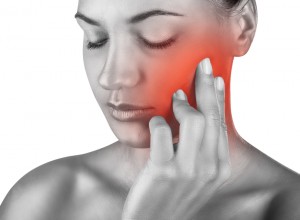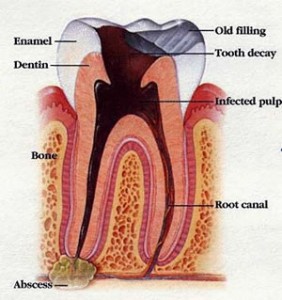
Why do we feel throbbing tooth pain?
The Greek scientist and philosopher, Aristotle, hypothesized that throbbing pain was linked to the heartbeat. That was over 2,000 years ago, and Aristotle’s assumption went largely unchallenged… until recently. Researchers at the University of Florida (UF) monitored the heart rates of subjects who were suffering from throbbing pain. What they found: they’re not linked.
What they did discover, however, was that throbbing pain was connected to the activity of alpha waves in the brain.
UF research neurologist, Dr. Andrew Ahn, said, “We understand very little about alpha waves, but they appear to have an important role in attention and how we experience the world. In addition, by analogy to how a radio works, alpha waves may also act as a carrier signal that allows different parts of the brain to communicate with itself.” So, scientists don’t really know why we experience pain just that we do experience it.
What causes tooth pain?

Tooth pain is often a symptom of a larger problem—one that often lies beneath the surface, in the pulp of the tooth. Throbbing tooth pain can be caused by:
A dental abscess: This is an infection of dental tissue. An abscessed tooth can be extremely dangerous if left untreated. If you suspect that you might have an abscess, make an appointment to see your dentist immediately.
Cavities: Once a hole forms in the enamel of a tooth, it’s possible for bacteria to infect the softer, more sensitive tissue inside the tooth. Sometimes it’s easy to spot a cavity, but sometimes they remain hidden, which is why it’s important to get to a dentist if you have tooth pain that lasts more than two days.
Fractured teeth: Cracked teeth may go unnoticed if the crack is smaller. If you’re experiencing pain that worsens when you release your bite or with sudden temperature changes, the pain might be from a fracture. Never leave a cracked tooth unchecked, as this is likely to make the problem worse.
Recent dental work: While dental work may be necessary, your dentist may damage some sensitive tissue in the process. Depending on the level of damage, it’s normal to experience some pain for a few days after certain procedures. Talk to your dentist about how long pain should last and follow up if it lasts longer than it should.
Sinusitis: The sinuses and the root of your teeth are located right next to each other. Blocked sinuses can put pressure on the roots of your teeth, which will result in pain. Pay attention if the pain is worst when you have a blocked nose and disappears when your sinuses clear up as this is a clear indication the two are connected.
What does all this mean?
Pain is a tool that humans use to protect themselves from harm. It tells us that something is wrong. If you touch a hot flame with your hand, for example, the pain receptors in your hand release chemicals that carry the message to the part of your brain that registers pain. The message goes back to your hand, you feel the pain, and then you take your hand away from the flame.
If you feel a throbbing pain in your tooth, your body is telling you that something is wrong. More importantly, you need to do something to fix it.
Not all tooth pain is a throbbing pain. Some tooth problems cause sharp, shooting pain and some cause dull aches. Some tooth pain comes and goes and some is persistent and difficult to relieve.
Whatever sort of pain you experience, sharp or throbbing, your brain is telling you that there is a problem that you need to fix. Simply, you need to do something about pain.
How to relieve the pain

Dr. Stone has been practicing cosmetic dentistry in Ft. Lauderdale since 1979. His success as a cosmetic dentist comes from years of advanced dental education, culminating in a degree in prosthodontics. He also has over 40 years of practical experience.
Throbbing tooth pain often gets worse at night. During the day there are many distractions from the pain while you go about the activities of everyday living. However, if it’s still bad during the day try rinsing with salt water, placing ice on the affected area, or over-the-counter pain relievers.
Throbbing tooth pain can intensify at bedtime, especially when you’re lying down. Here are some things to try to relieve the pain at night:
- First, elevate your head with two or three pillows. This can reduce the amount of blood flow to the affected area.
- Floss, especially before bedtime, to remove any food particles that might be causing pressure or pain in the area.
- Afterwards, try rinsing your mouth with warm salt water.
- Additionally, a warm tea bag, pressed against the affected area, may reduce the pain and feel very comforting.
Relieving throbbing tooth pain is important, but even more crucial is resolving the underlying cause of the pain, so that you can find permanent relief.
Call for an appointment as soon as you feel pain in your teeth or gums. Tooth pain is a signal, letting you know that there is a problem and that you need to find a solution. Contact us as soon as possible, so that we can solve the underlying problem and get that nagging pain out of your way.

